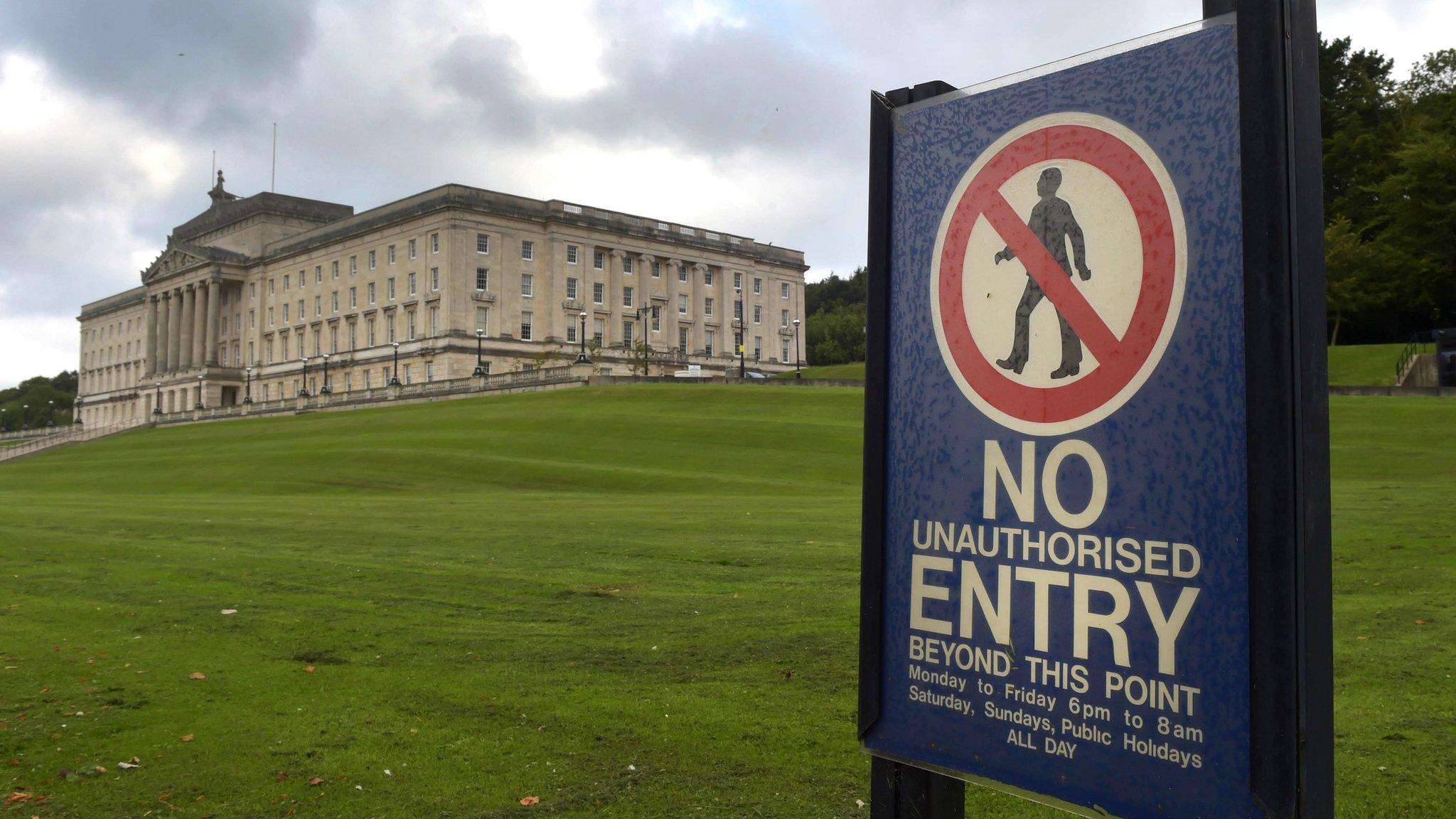NI paramilitary assessment: The DUP and IRA 'fingerprints'
- Published
- comments
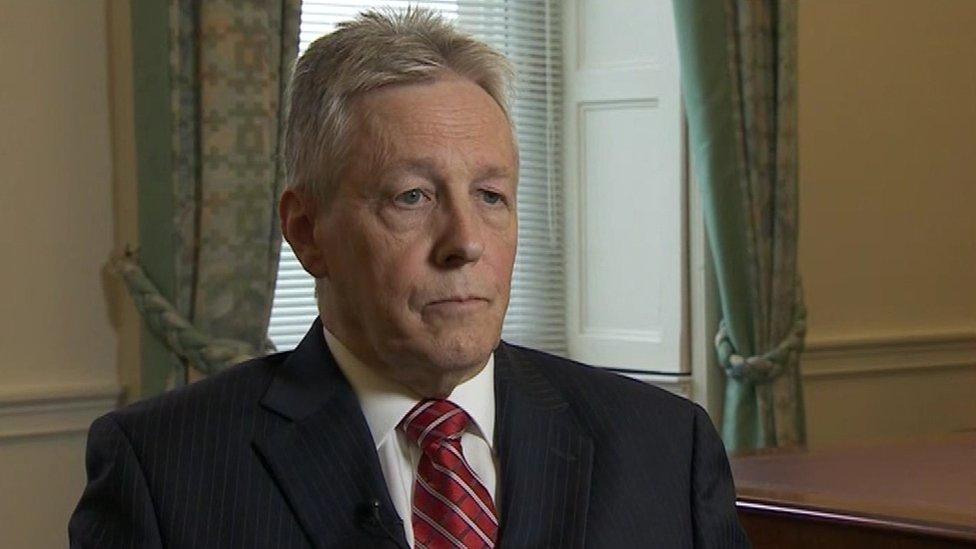
DUP leader Peter Robinson told the BBC he does not and has never believed the IRA's so-called army council has "different fingerprints" from the leadership of Sinn Féin
Rightly or wrongly, most reporters getting their hands on the eight-page assessment of paramilitary groups in Northern Ireland flicked through to page four and the three paragraphs dealing with the Provisional IRA.
This was not because the Provisionals present the greatest threat - the report makes clear the security services are most concerned about the danger posed by dissident republicans, such as the so-called "new" IRA, Óglaigh na hÉireann, and the Continuity IRA.
Rather, it is because the historic relationship between Sinn Féin, the second largest party in the Stormont Executive, and the Provisional IRA made anything the report had to say on this score potential political dynamite.
'Access to weapons'
Would the Democratic Unionist Party (DUP) find enough in the report to return to their ministerial jobs and relieve the self-inflicted pain caused by their rolling resignations?
On this score, the report's conclusions that the Provisional IRA's leadership is fully committed to the peace process and is pursuing a strategy with a "wholly political focus" could be seen as helpful.
Also helpful was the notion that nothing has changed since the Police Service of Northern Ireland's Chief Constable said he had no intelligence to suggest the Provisional IRA's leadership had sanctioned the murder of Kevin McGuigan.
'Overarching strategy'
However, the assessment that the Provisionals continue to have access to weapons, and that individual IRA members remain involved in crime, weighed on the other side of the balance.
Most striking was the assertion that "PIRA members" (presumably ones working for the British as agents) "believe that the Provisional army council oversees both PIRA and Sinn Féin with an overarching strategy".
In the past, this curiously-worded sentence would have had unionists running a mile from sharing power with republicans.
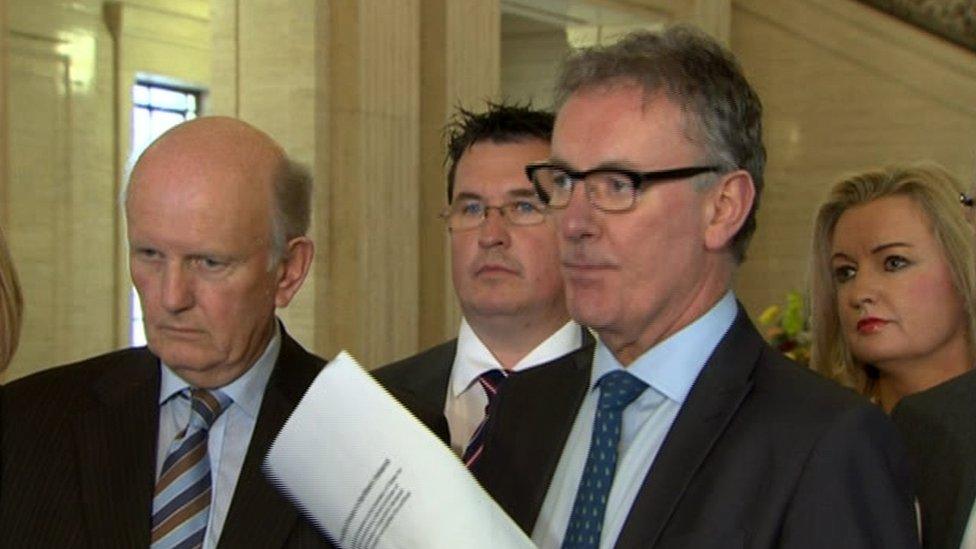
The UUP leader Mike Nesbitt claimed the report entirely vindicated the position his party took following the murder of Kevin McGuigan
Both the Traditional Unionist Voice (TUV) and the Ulster Unionist Party (UUP) seized on it as bolstering their own positions. Some commentators thought it threw the chances of the DUP returning to their ministerial jobs into serious doubt.
However, the DUP quickly confounded that view, announcing their ministers would return to their posts immediately.
'Different fingerprints'
DUP leader Peter Robinson argued that the arrest of senior Sinn Féin official Bobby Storey (who was subsequently released without charge) had been the straw which broke the Stormont camel's back, rather than the existence of IRA structures.
Interviewed by the BBC, Mr Robinson seemed philosophical about the police's belief that the IRA army council still sits at the top of the republican pile.
He argued that "it really is a distinction without a difference to say there's something special about the army council being involved".
"Does somebody think that the people on the army council have different fingerprints from the people who are in the leadership of Sinn Féin? I don't, never have," the DUP leader said.
'Thin ice'
Mr Robinson reckons the politicians now have a couple of weeks to save Stormont, and warns that the return of his ministers does not mean problems like dealing with paramilitarism or welfare reform have been resolved.
The DUP's decision to return to office may leave them on thin ice with some unionist voters, but continuing their "in-out" policy would not impress others.
They have decided giving the Stormont House talks another chance is a better option than collapsing the Northern Ireland Assembly and moving to an immediate election.
Whenever that election comes, the outcome of the next fortnight's inter-party negotiations and how the parties all handled this latest paramilitary assessment are likely to feature strongly at the various election hustings.
- Published20 October 2015
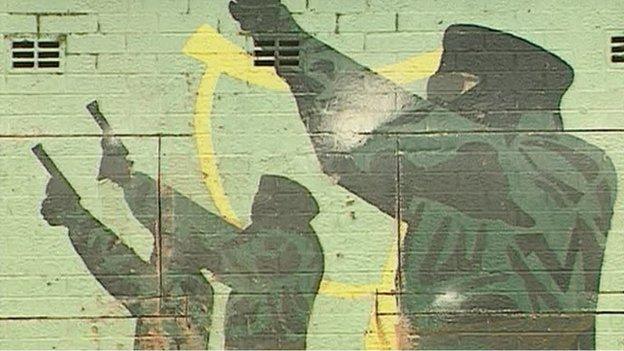
- Published20 October 2015
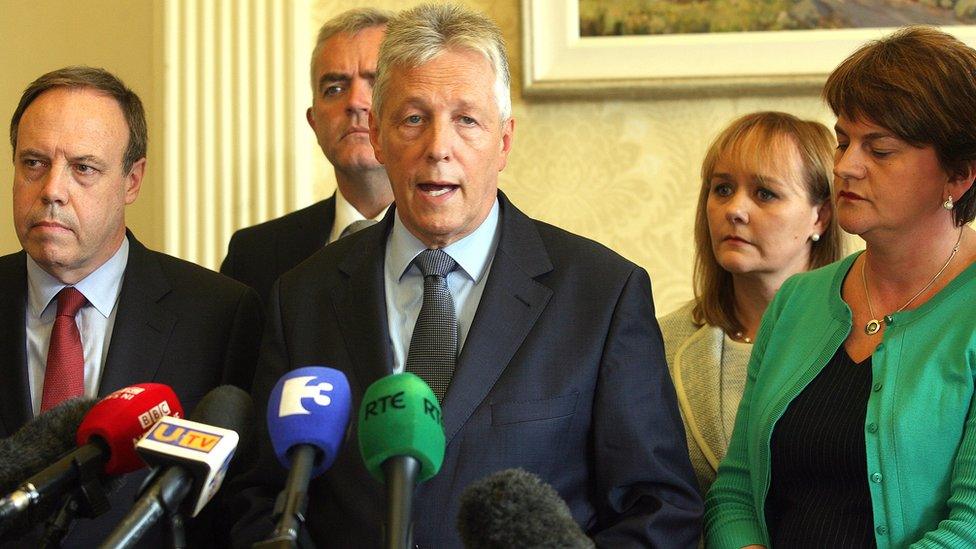
- Published13 November 2015
